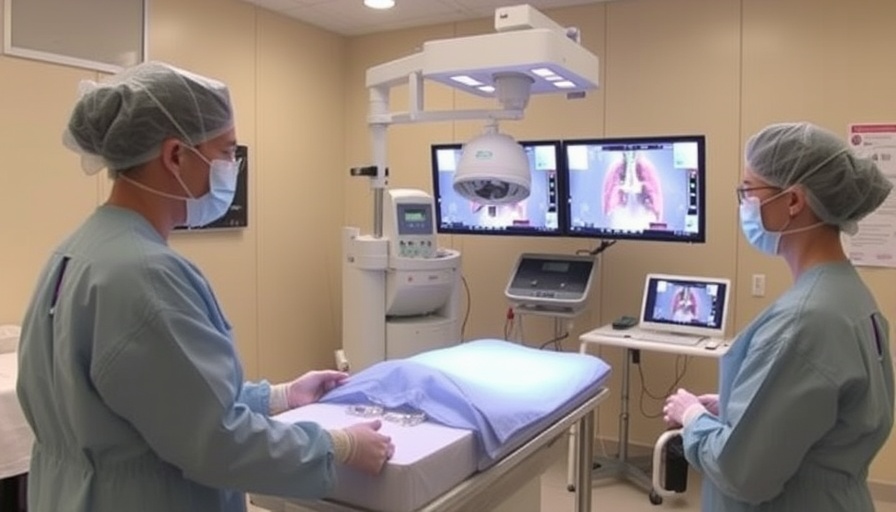
Robotic Bronchoscopy: A Groundbreaking Step for Lung Cancer Diagnosis
The introduction of robotic-assisted bronchoscopy at South Korea's National Cancer Center marks a significant milestone in the approach to lung cancer diagnosis. Developed by Intuitive Surgical, this advanced platform enhances diagnostic precision—a key factor in effective treatment. The technology addresses pressing limitations in traditional methods, allowing for more thorough tissue examinations and increased accuracy in identifying malignant nodules.
AI in Healthcare: Expanding Horizons Beyond Traditional Borders
The medical sphere is rapidly evolving, with AI playing a transformative role—an evolution that is extending beyond individual institutions. Gleneagles Hospital Chennai's recent partnership with the Vellore Institute of Technology aims to harness AI for neurological health solutions. The initiative focuses on developing advanced technologies, including neuroinformatics and rehabilitation tools that could enhance patient outcomes for conditions such as epilepsy and cognitive impairments.
Future of Health Tech: What This Means for Patients and Providers
The adoption of these sophisticated technologies serves not only immediate clinical needs but also paves the way for future innovations. These advancements will facilitate real-time health assessments, integrating data from wearable devices, enhancing healthcare accessibility in challenging environments, and improving the quality of care. Providers and health managers must stay informed about these trends to adapt to new methodologies that are reshaping healthcare delivery.
The Rising Role of AI in Military Healthcare
Recent partnerships, like that of Predictmedix AI and Pacific Mechatronics, showcase a growing trend in AI implementation within military healthcare frameworks. Their innovative health screening solution, suitable for high-security environments, exemplifies how technology can streamline and modernize operations. This expansion into military and border sectors is indicative of a broader acceptance of AI technologies across various levels of healthcare delivery.
Challenges and Opportunities in Health Technology Adoption
While the excitement surrounding new technologies is warranted, there are challenges that stakeholders must confront. Concerns about data privacy, technology integration into existing systems, and the training necessary for healthcare professionals to effectively leverage these innovations remain significant hurdles. Addressing these challenges is crucial for institutions aiming to thrive in a technology-driven health market.
The Need for Collaborative Research in Health Technology
As medical institutions like Gleneagles Hospital Chennai engage in collaborative research, the importance of interdisciplinary efforts becomes evident. This comprehensive approach encourages the pooling of expertise, fostering innovation that is grounded in clinical needs. The results promise serious implications for healthcare, suggesting that partnerships may hold the key to the future of successful healthcare technologies.
Take Action: Staying Ahead in Health Tech Innovation
For professionals in the tech-driven sectors of healthcare, understanding and adapting to these emerging technologies is pivotal. Engaging with new research, participating in partnerships, and fostering a culture of innovation can empower organizations to lead in healthcare innovation. Mark this moment in your strategic planning and explore how these advancements can redefine your offerings.
 Add Row
Add Row  Add
Add 




Write A Comment